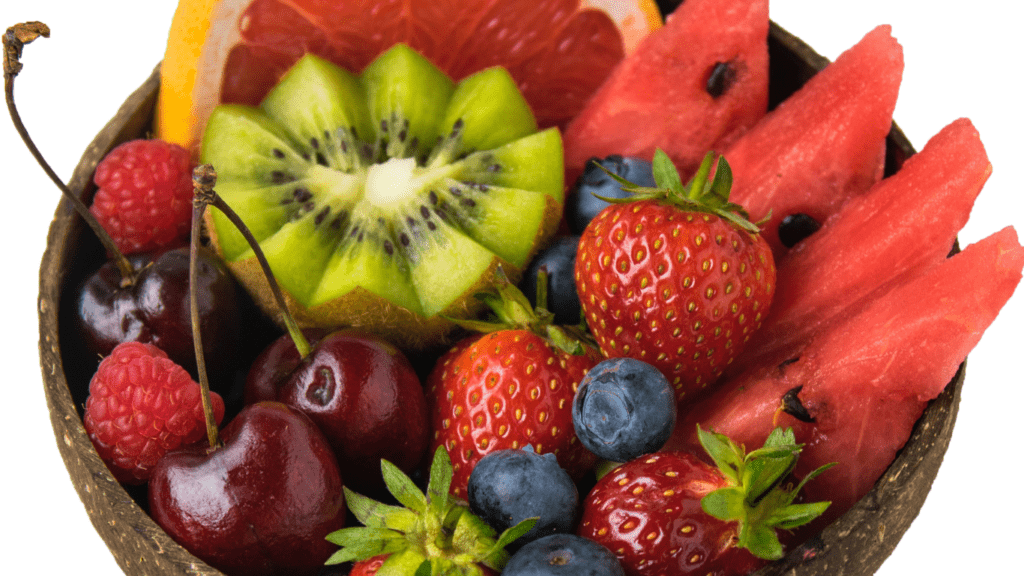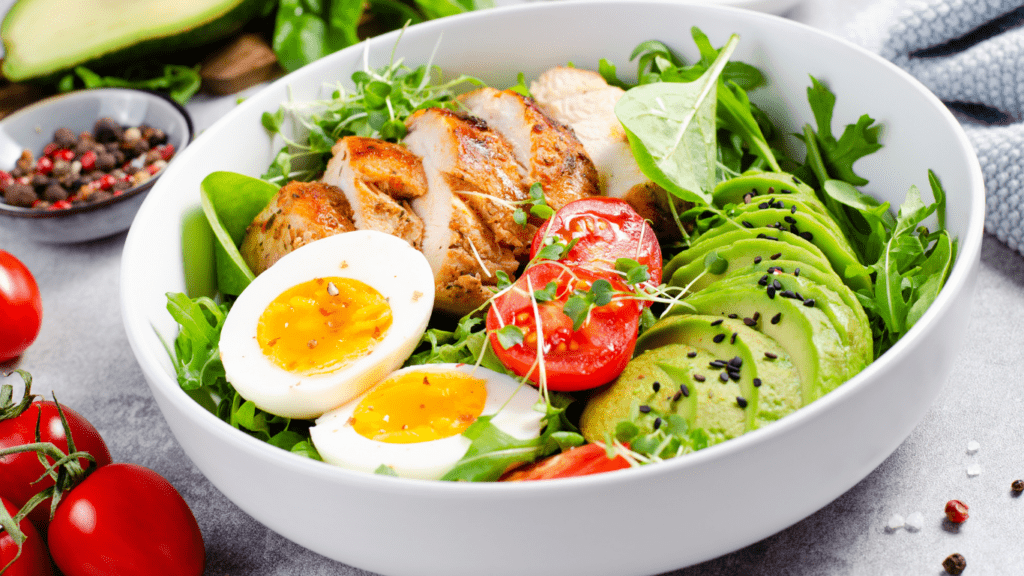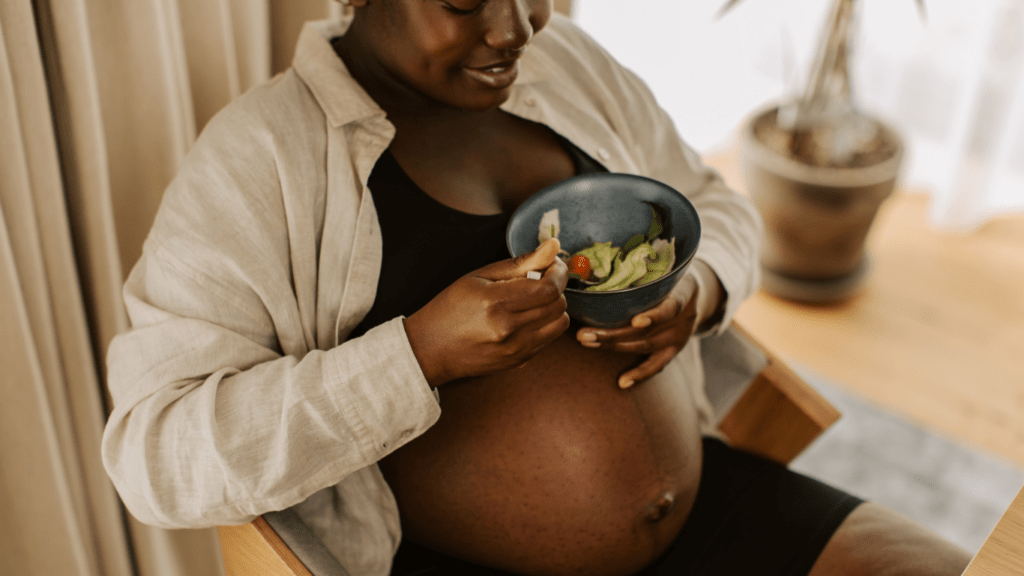When I first discovered I was pregnant, the sheer amount of information on what to eat felt overwhelming. Nutrition during pregnancy isn’t just about eating more; it’s about eating right. The foods you choose can have a profound impact on your baby’s development and your own well-being.
I’ll break down the essential nutrients and foods you should prioritize to ensure a healthy pregnancy. From leafy greens packed with folic acid to protein-rich lean meats, knowing what to include in your diet can make all the difference. Let’s dive into the must-have foods that will support you and your growing baby through this incredible journey.
Importance Of Proper Nutrition During Pregnancy
Proper nutrition during pregnancy is crucial for both the mother and the developing baby. The foods consumed provide essential nutrients that facilitate fetal growth and development. A balanced diet helps prevent common pregnancy complications like gestational diabetes and pre-eclampsia.
Pregnant women need more vitamins and minerals to support the growing fetus. Folate, calcium, iron, and protein are particularly important. Folate prevents neural tube defects, which affect the brain and spine. I recommend eating leafy greens, beans, and fortified cereals to get enough folate.
Calcium supports the development of strong bones and teeth in the baby. Dairy products, such as milk, cheese, and yogurt, are excellent sources of calcium. Non-dairy options include fortified plant-based milk and leafy greens like kale and broccoli.
Iron is vital for producing hemoglobin, which carries oxygen in the blood. Insufficient iron can lead to anemia, causing fatigue and increasing the risk of preterm delivery and low birth weight. Lean meats, spinach, and legumes, such as lentils and chickpeas, are good iron sources.
Protein intake is essential for cell growth and repair, ensuring the baby’s tissues and organs develop properly. Good sources of protein include lean meats, fish, eggs, dairy products, beans, tofu, and nuts.
Hydration is equally important. Water supports metabolic processes and helps form amniotic fluid, which protects and facilitates the baby’s movements. I advise pregnant women to drink at least 8-10 cups of water daily.
Eating a variety of nutrient-dense foods supports overall health. Incorporating fruits, vegetables, whole grains, and healthy fats ensures well-rounded nutrition. Nutrient-dense foods reduce risks associated with nutrient deficiencies and support a healthy pregnancy.
Essential Nutrients For Expectant Mothers
Expectant mothers need to prioritize essential nutrients to support their health and their baby’s development. Key nutrients include folic acid, iron, calcium, protein, and omega-3 fatty acids.
- Folic Acid
Folic acid is essential for preventing neural tube defects. Women should consume 400-800 micrograms daily. Leafy greens, beans, and fortified cereals are excellent sources. Including these foods regularly ensures sufficient folate intake.
- Iron
Iron supports hemoglobin production, crucial for transporting oxygen. Pregnant women need 27 milligrams per day. Lean meats, spinach, and legumes provide ample iron. Combining these with vitamin C-rich foods enhances absorption.
- Calcium
Calcium helps develop strong bones and teeth. Pregnant women need 1,000 milligrams daily. Dairy products, fortified plant-based milks, and leafy greens supply calcium. Adequate calcium intake prevents maternal bone loss.
- Protein
Protein is vital for cell growth and repair. Expectant mothers need 75-100 grams per day. Lean meats, fish, eggs, and nuts are excellent sources. Regular inclusion of these foods supports both maternal and fetal development.
- Omega-3 Fatty Acids
Omega-3 fatty acids promote brain and eye development. Pregnant women require at least 200-300 milligrams of DHA daily. Fatty fish like salmon, walnuts, and flaxseeds are rich in omega-3s. These should be part of a balanced diet for optimal fetal growth.
Foods Rich In Essential Nutrients

Consuming foods rich in essential nutrients is vital during pregnancy. These foods support both the baby’s development and the mother’s overall health.
Leafy Greens
Leafy greens are a powerhouse of essential nutrients for pregnant women. Rich in folate, they help prevent neural tube defects. Good sources include spinach, kale, and arugula. Daily consumption ensures a steady intake of vitamins A, C, and K, keeping you and your baby healthy.
Lean Meats
Lean meats provide high-quality protein and essential iron. Chicken, turkey, and lean cuts of beef are excellent choices. Protein supports fetal growth, while iron prevents anemia by bolstering hemoglobin levels. Pair these with vitamin C-rich foods like bell peppers to enhance iron absorption.
Dairy Products
Dairy products supply much-needed calcium for bone development. Options like milk, yogurt, and cheese deliver 1,000 milligrams daily. For those lactose-intolerant, fortified plant-based alternatives like almond or soy milk are good substitutes.
Fruits and Vegetables
Fruits and vegetables offer a spectrum of vitamins, minerals, and fiber. Oranges, berries, and apples provide vitamin C, while carrots and sweet potatoes supply vitamin A. A colorful plate ensures diverse nutrient intake, supporting overall fetal development.
Nuts and Seeds
Nuts and seeds are excellent sources of healthy fats, protein, and omega-3 fatty acids. Walnuts, flaxseeds, and chia seeds are particularly beneficial for brain and eye development. A daily intake of these helps meet the 200-300 milligrams of DHA recommended for pregnant women.
Hydration And Pregnancy
Staying hydrated during pregnancy is crucial for both the mother’s and the baby’s health. Water aids in forming the amniotic fluid surrounding the baby, helps digestion, and optimizes nutrient absorption. Proper hydration also prevents common pregnancy issues like constipation, urinary tract infections, and swelling.
Daily Water Intake
Pregnant women should aim for 8-10 cups of water daily. This ensures adequate fluid levels are maintained to support increased blood volume and fetal circulation. If you’re physically active or live in a hot climate, you might need more than the standard recommendation.
Hydrating Foods
Incorporating water-rich foods can also boost hydration levels. Fruits like:
- watermelon,
- strawberries
- citrus
along with vegetables like cucumbers and lettuce, are excellent choices. These foods not only provide hydration but also supply essential vitamins and minerals beneficial for pregnancy.
Signs of Dehydration
It’s important to recognize signs of dehydration to address them promptly. Common signs include dark urine, dizziness, headaches, and dry mouth. Increasing water intake at the first sign of these symptoms can help prevent further complications.
Additional Hydration Tips
Other beverages like herbal teas, milk, and fresh fruit juices can contribute to your daily fluid intake. Avoid caffeinated beverages as they can lead to dehydration if consumed in large amounts. Carry a water bottle with you throughout the day to ensure you’re consistently drinking water.
Foods To Limit Or Avoid
Pregnancy requires careful food choices to safeguard the health of both mother and baby. Certain foods present risks and should be limited or avoided.
High-Mercury Fish
Fish like king mackerel, shark, swordfish, and tilefish contain high mercury levels. Mercury can impair fetal brain and nervous system development.
Undercooked or Raw Foods
Avoid undercooked or raw seafood, eggs, and meats. They pose a risk of bacterial infections, such as salmonella or listeria, which can lead to severe complications during pregnancy.
Unpasteurized Dairy and Juices
Unpasteurized products can harbor harmful bacteria like E. coli and listeria. Stick to pasteurized milk, cheeses, and juices to minimize risk.
Caffeinated Beverages
Limit caffeine intake to under 200 milligrams per day, around one 12-ounce cup of coffee. Excessive caffeine can cross the placenta and affect fetal heart rate.
Alcohol
Avoid alcohol entirely. Alcohol consumption during pregnancy is linked to fetal alcohol spectrum disorders (FASD), which can cause long-term developmental issues.
Processed Foods
Highly processed foods often contain unhealthy fats, sugars, and sodium. They provide little nutritional benefit and can contribute to excessive weight gain and gestational diabetes.
Artificial Sweeteners
Limit artificial sweeteners like aspartame and saccharin. While generally considered safe in moderation, excessive consumption can pose risks.
High-Sodium Foods
High-sodium foods, such as fast food and packaged snacks, can lead to water retention and high blood pressure. Aim for less than 2,300 milligrams of sodium daily.
By being mindful of these categories, you can promote a healthier pregnancy and reduce potential risks associated with certain foods.
Practical Tips For A Balanced Diet
Eating a balanced diet during pregnancy is crucial, but knowing practical tips can make it easier. I’ll share some strategies to help you maintain optimal nutrition throughout your pregnancy.
Plan Nutrient-Rich Meals
Create meal plans that incorporate essential nutrients. Focus on meals with a variety of food groups. Include leafy greens, beans, and fortified cereals for folate; dairy products or fortified plant-based options for calcium; lean meats, spinach, and legumes for iron; and fatty fish, walnuts, and flaxseeds for omega-3 fatty acids.
Choose Quality Over Quantity
Rather than eating more food, choose nutrient-dense options. For instance, a snack of Greek yogurt with nuts and berries offers protein, calcium, and antioxidants, which benefit both you and your baby. This approach ensures you’re getting the most nutritional value out of what you eat.
Stay Hydrated
Aim to drink 8-10 cups of water daily. To make this more achievable, carry a water bottle with you and take small sips throughout the day. Incorporate water-rich foods like cucumbers, melons, and oranges into your diet. Drinking herbal teas can also help boost hydration without adding caffeine.
Monitor Portions
While it’s important to provide enough nutrients, overeating can lead to unnecessary weight gain and related complications. Pay attention to portion sizes, and opt for eating smaller meals more frequently. This can help manage hunger and maintain energy levels.
Prepare Healthy Snacks
Having healthy snacks readily available can prevent reaching for less nutritious options. Stock your pantry and fridge with snacks like cut vegetables, hummus, fruits, and nuts. These snacks are convenient and provide essential vitamins and minerals.
Use Safe Cooking Practices
Ensure that foods are thoroughly cooked to avoid bacterial infections. Use a food thermometer to check that meats reach safe internal temperatures. Avoid cross-contamination by using separate cutting boards for raw meats and vegetables. Clean hands and utensils thoroughly before and after handling food.
Limit Processed Foods
It’s important to minimize the intake of highly processed foods, artificial sweeteners, and high-sodium items. These can contribute to health issues during pregnancy. Opt for whole foods like fresh fruits, vegetables, whole grains, and lean proteins.
Be Mindful of Food Sensitivities
Pregnancy can make you more sensitive to certain foods. Pay attention to what your body tells you. If you notice adverse reactions, avoid those foods and consult your healthcare provider for alternatives.
Seek Professional Guidance
Consult a nutritionist or your healthcare provider to tailor a diet plan that meets your specific needs. Professional guidance can provide personalized advice to ensure you’re meeting all nutritional requirements.
By following these practical tips, maintaining a balanced diet during pregnancy can become more manageable and beneficial for both you and your baby.




